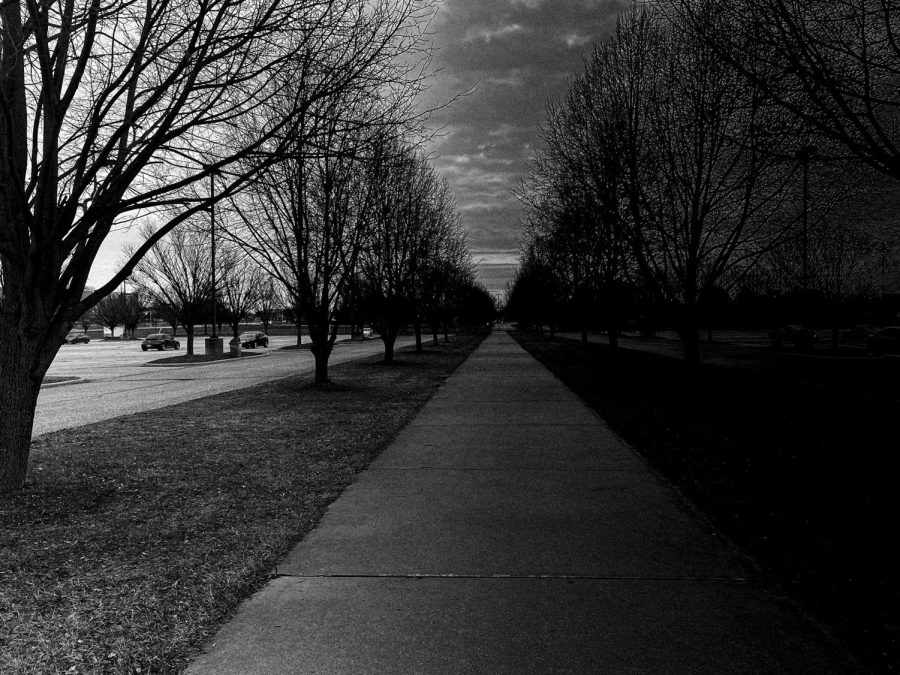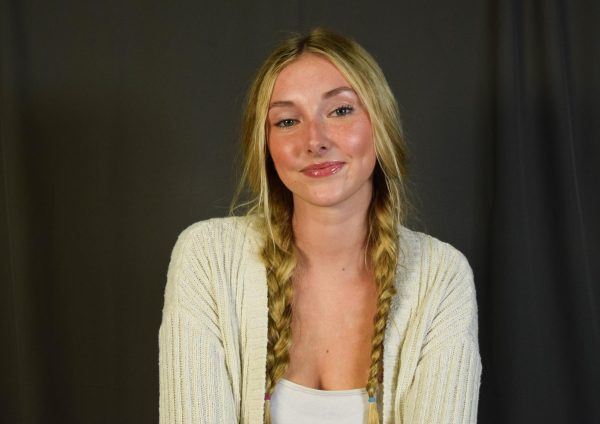As the Days get Darker…
January 20, 2022
As the cold wind blows, the snow starts to fall, and the days get dark. Feelings and emotions freeze in time as homework starts to pile up and final studies begin. For some the winter holidays are the happiest time of the year, but for others, it is not. So, the seasonal depression sets in…
Also called Seasonal Affective Disorder (SAD), seasonal depression usually impacts people between the fall and winter months. Defined as a mood disorder characterized by depression that occurs the same time each year, it’s often characterized by a feeling of hopelessness and social withdrawal. The feeling can be overwhelming and can take a toll on sufferers in the long term.
“Seasonal depression acts very similarly to depression,” Mark Pardue said, who is a private clinical therapist. “Essentially it’s depression, but we can correlate it to the time of the year, which is typically late fall and winter months.” According to Pardue, SAD can occur because of the lack of sun brought on by winter, however there is a deeper level to this form of depression. It’s not just ‘getting sad when it‘s cold out’, it has such a deeper meaning to those feelings when experiencing the emotional/physical effects first hand.
According to Mayo Clinic,symptoms of seasonal depression can include: feeling sad or having a depressed mood, feeling worthless or guilty, difficulty thinking,or making decisions, loss of interests or pleasure in activities once enjoyed, and apathy, lack of interest, enthusiasm, or concern.
“I tend to stop answering texts and lay in bed most days. It’ll make me stop doing my passions, like painting or playing my instrument,” NHS sophomore Mars Brown said.
Those feeling the effects of SAD may find themselves losing interest in the hobbies that once gave them a sense of belonging and joy.
“When I get this seasonal depression it feels like it goes on for years,” NHS sophomore Maddison Hoppe said. “I sit in my bed and watch TikToks because I can’t go outside.”
The days start to cycle and get longer, leaving someone feeling stuck.
“A big part of [seasonal depression] is the sun is gone, the days are shorter, the days are awful, and you can’t get outside to get fresh air, so on and so forth. They can kinda put us in a despair cycle,” Pardue said.
Many aspects of life can cause people to become overwhelmed, the holiday season being one of the most overwhelming for some. SAD can affect people in different ways, leaving individuals to get lost in the world happening around them.
“It impacts me most because it usually is at its worst during finals and Christmas time, so while everyone is either stressed or happy I feel empty,” sophomore Emilia Bullock said. “I know I should be excited for winter break or nervous for tests, but I just don’t feel anything.”
Reaching out for help can be easy for some, however for others who aren’t as lucky, asking for help can mean talking to people who aren’t familiar with the situation.
“Everyone thinks they know you best when they really don’t. Yes, there are a few good things people say to do, like take a break or certain coping mechanisms that might work, but most of the time it’s generic nonsense,” says Bullock.
In order to get the help that one truly needs, experts are sometimes required to help people of all ages through this time in their life. Experts who want to help anyone suffering are available all around that want to lend a hand to anyone who is suffering, so they can be the best version of themselves.
“Just remember that help is available, and that they don’t have to suffer alone. There are effective treatment options. There’s nothing to be ashamed about, this is a common occurrence,” Linda Olvey, a licensed clinical social worker with the Indiana court system, said.
One of the hardest things for someone struggling with seasonal depression, or any other mental health issues, is having the mindset that they will get through it. Olvey offers a few different ways that SAD can be treated and or managed.
‘‘There are three things. You might invest in light therapy. It’s a box that mimics sunlight. So if someone is working in school, or out of school, and rarely gets out in the sun, we know there are some light therapies that are available and are really helping. I also think it’s really important not just to try to self-treat, but talking to a therapist sometimes is really helpful. And they can offer additional coping mechanisms like meditation, mindfulness. They can have really specific ideas about activities that can promote some more relief,” Olvey said.
When seasonal depression hits, finding someone you feel comfortable talking with about this feeling of being alone is just one. Being able to talk to someone or opening up can even make these feelings be more meaningful.
“I feel like I can only talk to my friends about my seasonal depression when it gets really bad, but I also feel like if I talk about it, it just makes the feelings more real,” said Bullock.
The feeling of being alone and being stuck in time can be caused by chemical imbalances in the brain. According to the American Psychiatric Association (APA), people don’t choose to be sad. It’s not something a person should feel makes them different from others. It is something anyone can experience.
“SAD has been linked to a biochemical imbalance in the brain prompted by shorter daylight hours and less sunlight in winter.” The APA says about seasonal affective disorder.
Life gets stressful and big events can approach, causing a sense of life leaving you behind.
“It makes me not want to talk to anyone, to just cut everyone off and wallow in self pity, because now I don’t have anyone to talk to,” Bullock said.
When the sun disappears as winter begins, we see less of our world’s light. If someone feels like they have seasonal depression, according to the APA it’s not their fault, it’s the chemicals in your brain. Nothing is wrong with people who feel this way when this time of year comes around. Let’s not pretend that seasonal depression is something to avoid, let’s look at how to help those around us.







